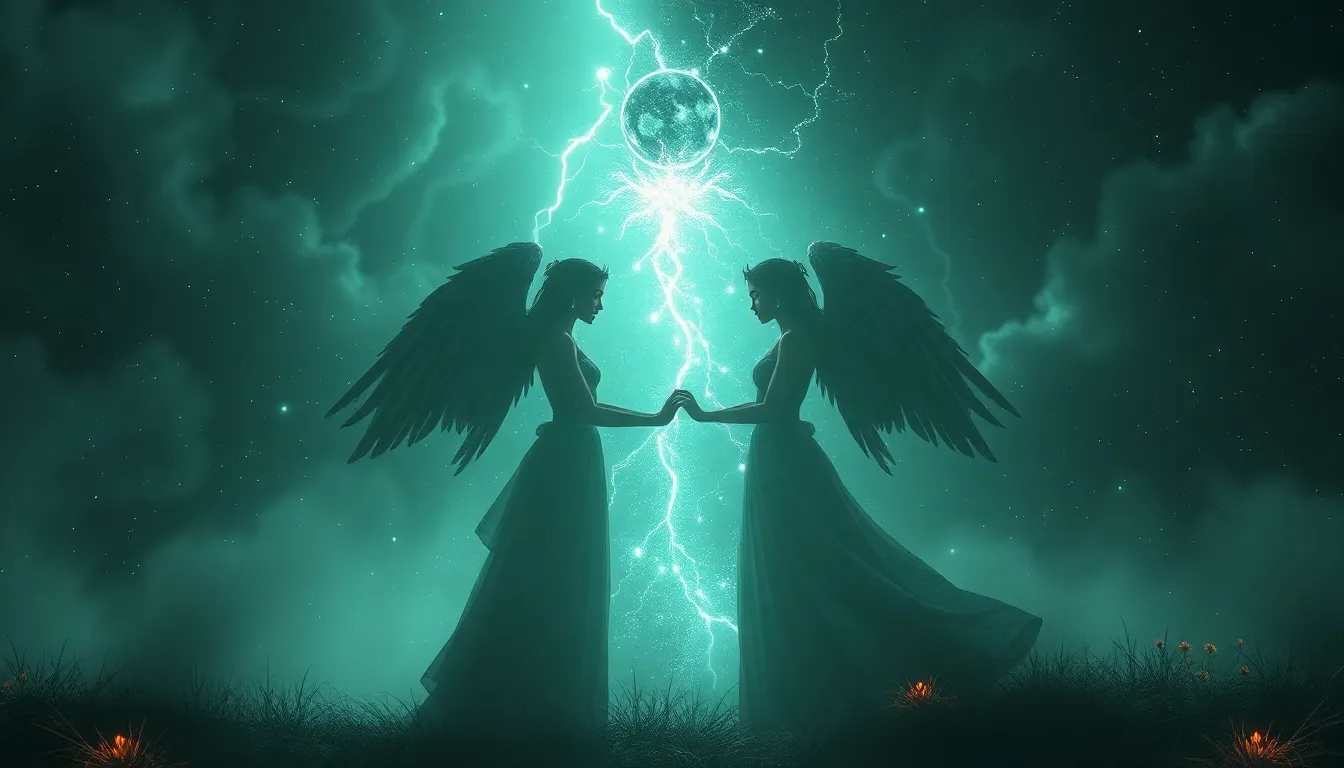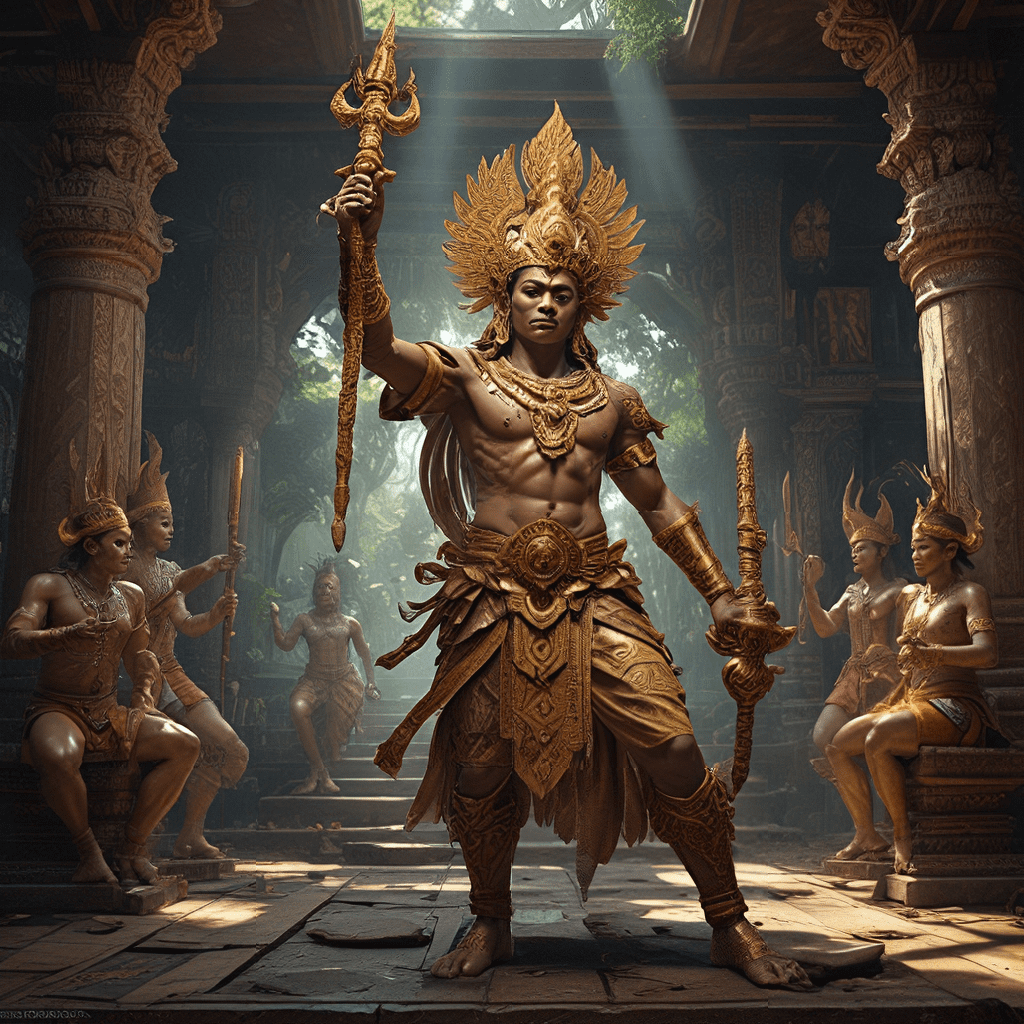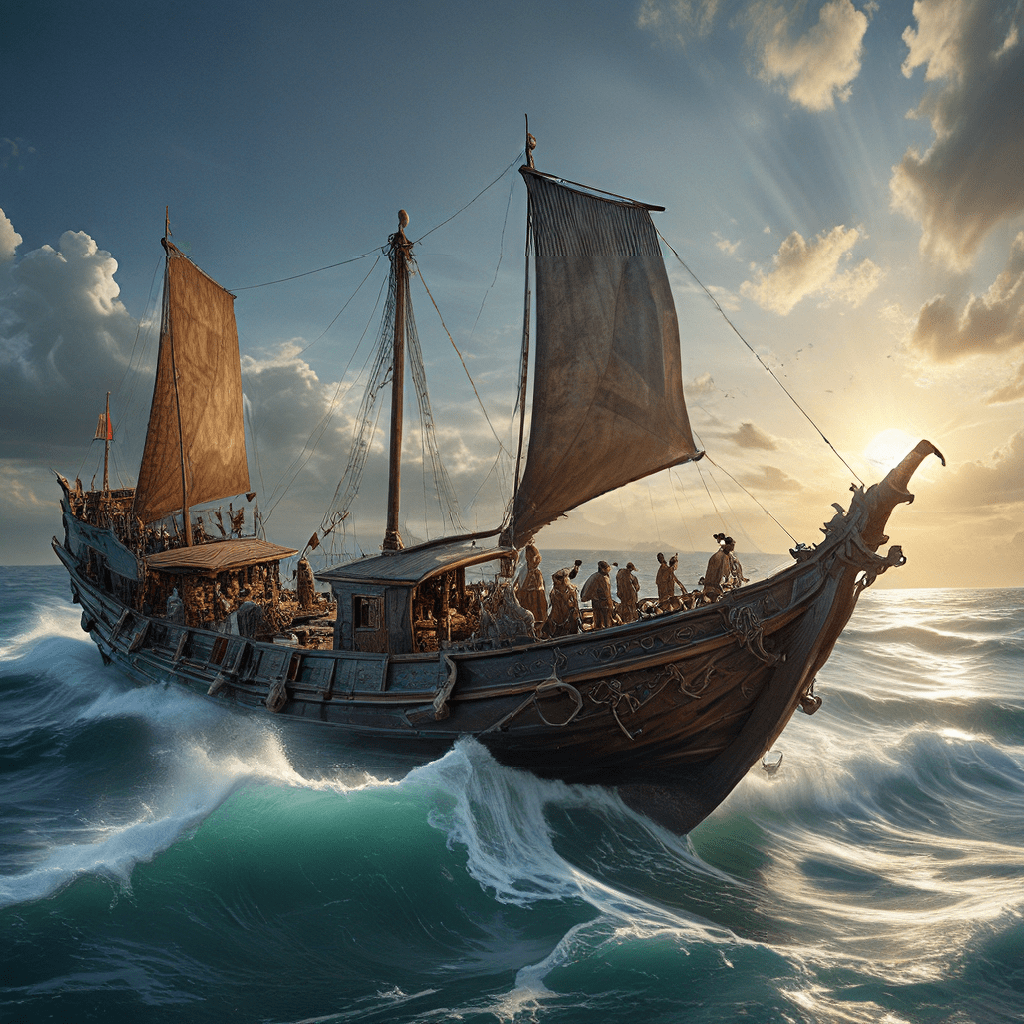Mythical Love and Destiny: The Fateful Encounters That Changed Everything
I. Introduction
Mythical love embodies the idea of a connection so profound that it transcends the boundaries of time and space. It signifies a love that is not only passionate but often entwined with destiny, fate, and the cosmic forces of the universe. Across various cultures, mythical love stories have served as allegories for human emotions, relationships, and the intricacies of life.
Destiny, as a concept, has been a powerful theme in literature and folklore, representing the predetermined course of events that shape our lives and relationships. This article aims to explore the fateful encounters that have shaped legendary romances throughout history, demonstrating how these narratives have influenced our understanding of love and fate.
II. The Role of Fate in Mythical Love Stories
A. Understanding Destiny: A Historical Perspective
Throughout history, the concept of destiny has been deeply rooted in human culture. Many ancient civilizations believed that the gods controlled fate, determining the paths individuals would take. The Moirai in Greek mythology, for instance, were the three Fates who spun, measured, and cut the thread of life, signifying that fate was inescapable.
B. The Intersection of Love and Fate in Mythology
In mythology, love and fate are often intertwined, suggesting that romantic connections are not merely a matter of chance but are orchestrated by higher powers. This notion implies that love can be both a blessing and a curse, leading to both great joy and profound sorrow.
C. Examples of Fate-Driven Love Stories from Different Cultures
- Orpheus and Eurydice: A tale of love that defies death.
- Tristan and Isolde: A romance marked by betrayal and destiny.
- Pygmalion and Galatea: The transformative power of love.
III. Iconic Mythical Couples and Their Fateful Encounters
A. Orpheus and Eurydice: The Power of Love and Loss
The tragic love story of Orpheus and Eurydice highlights the theme of love’s power to transcend even death. Orpheus, a gifted musician, descends into the Underworld to retrieve his beloved Eurydice, only to lose her forever when he disobeys the command not to look back. This tale illustrates how fate can manipulate love, leading to heartbreaking consequences.
B. Pygmalion and Galatea: The Creator’s Love and Divine Intervention
Pygmalion, a sculptor, falls in love with a statue he carves named Galatea. His devotion is so profound that the goddess Aphrodite brings the statue to life, demonstrating how love can inspire creation and lead to extraordinary outcomes. Their story reflects the belief that true love can summon the divine.
C. Tristan and Isolde: Love Doomed by Fate and Betrayal
The tale of Tristan and Isolde is one of the most iconic love stories marked by fate and betrayal. Their love, kindled by a chance encounter, faces insurmountable obstacles, including loyalty to a king. Their tragic end serves as a reminder of the complexities of love influenced by fate.
IV. The Influence of Fate on Love in Ancient Civilizations
A. Greek Mythology: The Moirai and Their Impact on Love
The Moirai, or Fates, were central figures in Greek mythology, representing the inexorable nature of destiny. Their influence extended to romantic relationships, suggesting that love could be preordained or fated by the gods.
B. Roman Mythology: Venus and the Concept of Predestined Love
In Roman mythology, Venus, the goddess of love, played a crucial role in orchestrating romantic encounters. The Romans believed that love was often predestined and divinely influenced, reflecting a strong connection between fate and romantic relationships.
C. Eastern Philosophies: Karma and Love in Hindu and Buddhist Texts
In Eastern philosophies, particularly in Hinduism and Buddhism, the concepts of karma and reincarnation highlight the intricate relationship between love and fate. Actions in past lives influence current relationships, suggesting that love can be both a result of past choices and a pathway to future growth.
V. Literary Interpretations of Mythical Love and Destiny
A. Exploration of Famous Literary Works Featuring Fateful Love Stories
Numerous literary works have captured the essence of mythical love intertwined with fate. Shakespeare’s “Romeo and Juliet,” for example, portrays a love that is doomed from the start, emphasizing the tragic elements of fate.
B. Thematic Analysis of Love, Fate, and Choice in Literature
Literature often explores the tension between fate and free will, questioning whether characters are bound by destiny or can exercise choice. This theme resonates in various narratives, inviting readers to reflect on the nature of love and agency.
C. How Authors Use Mythical Elements to Enhance Romantic Narratives
Authors frequently incorporate mythical elements to enrich their stories, using symbols, archetypes, and allegories to convey deeper meanings about love and destiny. This approach adds layers of complexity and resonance to romantic narratives.
VI. The Psychological Aspects of Mythical Love and Destiny
A. The Belief in “Soulmates” and Its Psychological Implications
The idea of soulmates—individuals destined to be together—has significant psychological implications, influencing how people perceive love and relationships. This belief can lead to unrealistic expectations and a sense of inevitability in romantic partnerships.
B. The Impact of Fate-Driven Love on Personal Identity and Life Choices
Fate-driven love stories often shape individuals’ identities and life choices, as the narratives of destined love can inspire people to seek meaningful connections. This influence can be both empowering and burdensome.
C. The Role of Destiny in Shaping Romantic Relationships in Modern Society
In contemporary society, the concept of destiny continues to shape romantic relationships. Many individuals still believe in signs and serendipity, attributing their love stories to fate and chance encounters that seem preordained.
VII. Modern Adaptations of Mythical Love and Destiny
A. How Contemporary Media Portrays Mythical Love Stories
Modern media, including films, television shows, and novels, often adapt mythical love stories, reinterpreting them for contemporary audiences. These adaptations maintain the core themes of love and destiny while reflecting modern societal values.
B. Analysis of Films and Novels Inspired by Ancient Myths
Films like “The Shape of Water” and novels such as “The Song of Achilles” draw inspiration from ancient myths, exploring themes of love, fate, and sacrifice. These stories resonate with audiences, reaffirming the timeless nature of mythical love.
C. The Relevance of Mythical Love in Today’s Romantic Narratives
Mythical love continues to be relevant in today’s narratives, as people seek connections that feel meaningful and destined. The exploration of love’s complexities remains a central theme in modern storytelling.
VIII. The Cultural Impact of Mythical Love and Destiny
A. How Folklore Shapes Societal Views on Love and Relationships
Folklore often reflects cultural beliefs about love and relationships, shaping societal norms and expectations. These narratives can influence how individuals perceive romantic connections and their roles within them.
B. The Enduring Legacy of Mythical Love Stories in Art and Culture
The legacy of mythical love stories is evident in various art forms, including literature, visual arts, and music. These stories continue to inspire artists and creators, ensuring their survival across generations.
C. Cross-Cultural Comparisons of Love and Destiny Motifs
Cross-cultural comparisons reveal common motifs in love and destiny, highlighting the universal nature of these themes. Whether through Eastern or Western narratives, the exploration of fate in love transcends cultural boundaries.</




